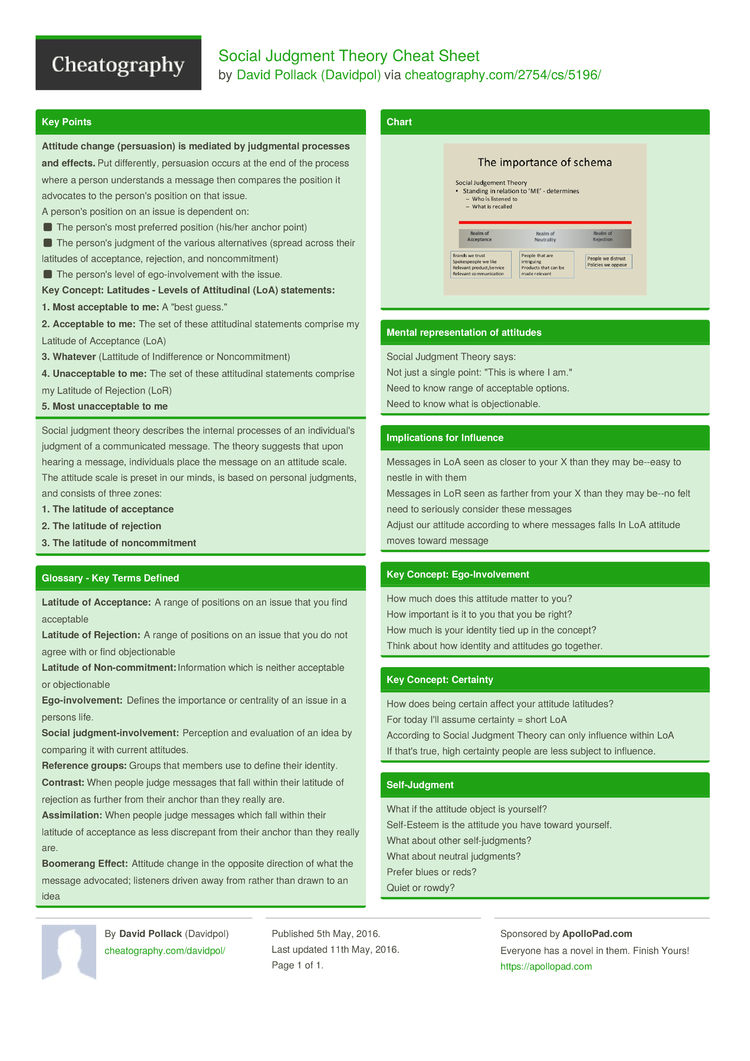

It was, therefore, concluded that social judgement theory helps the consumers to interpret advertising campaigns and decide whether to act positively or negatively.

If I were paid to do it, I would recycle. I understand the value of recycling, but it is an inconvenience to me. Recycling saves us energy Recycling helps preserve resources and protects habitats. An understanding of the social judgement theory is important to companies because it helps companies to spend money on advertising campaigns more effectively. Social Judgment Theory :Recycling Recycling is an inconvenience for me There is not enough space in my household to recycle It takes too much time to recycle. The discourse shows that advertisers must use persuasive strategies that will make the consumers to be loyal to their brands more so, the strength of the social judgement theory is that it illustrates the most important elements that motivate people to buy a product and it also shows what the connections are between the motives and attributes of products or services. Thus, the researchers embarked on a self affirmative discourse of the implications of social judgement theory for persuasive advertising campaigns. Social Judgement Theory is a Self-persuasion theory proposed by Carolyn Sherif, Muzafer Sherif, and Carl Hovland (Daniel O Keefe, 2016).

The way the consumers perceive an advertising campaign will, therefore, determine how they will respond to the advertisement. In particular, we propose a model of opinion dynamics which takes into account the notions of latitude of acceptance, latitude of noncommitment, and latitude of rejection from social. Advertising is generally aimed at increasing demand, influencing people to change brands or motivating people to make a purchase advertising messages are designed to induce and lure consumers to buy particular products or services. In this paper, we make a bridge between two theories in social psychology, namely social judgment theory and balance theory, exploiting nonlinear models.


 0 kommentar(er)
0 kommentar(er)
